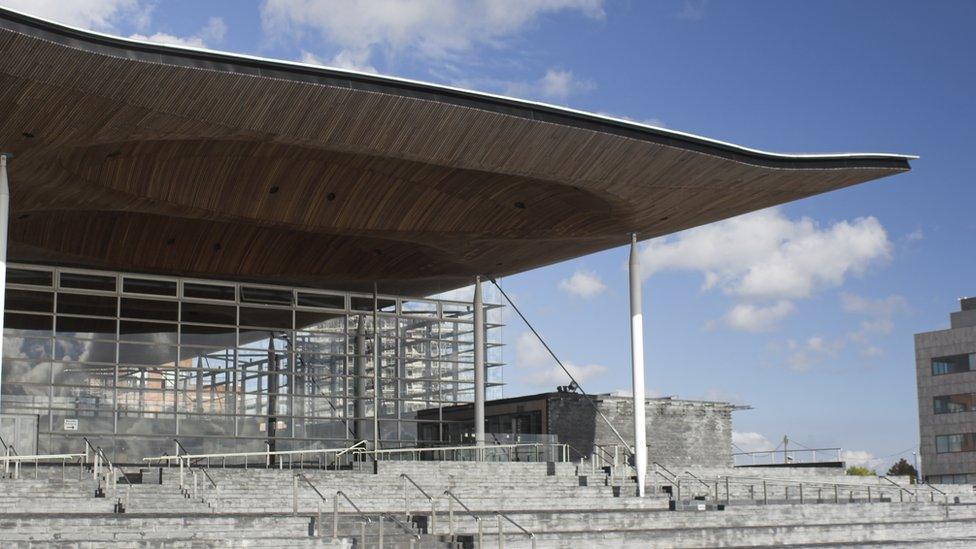Senedd elections 2021: Clock ticks down to voting in May
- Published
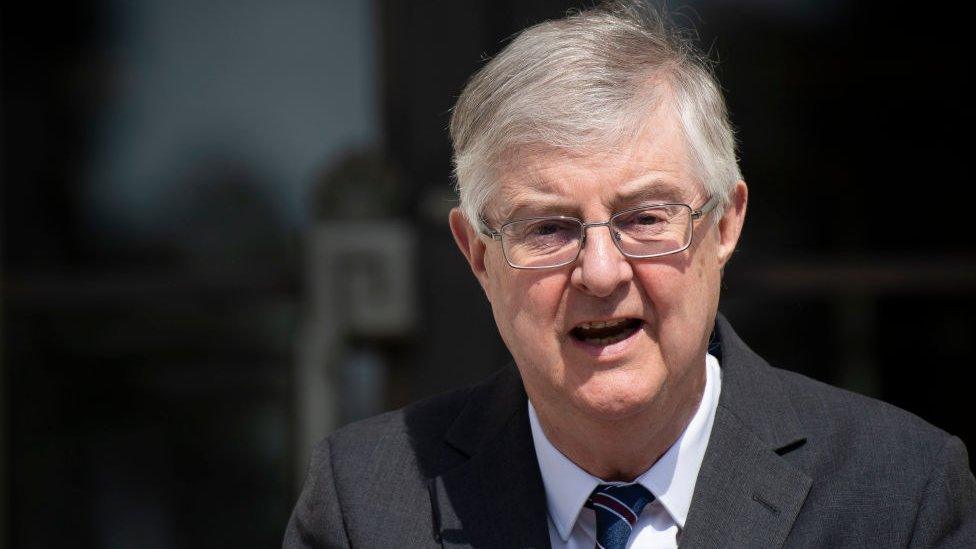
Mark Drakeford is aiming to lead Welsh Labour to election success in May
On the third floor of the Senedd's Tŷ Hywel building a clock counts down towards Thursday 6 May 2021.
It sits in the Conservatives' office in Cardiff Bay, ticking towards election day.
For long stretches of 2020, it sat unwatched.
Some staff who left the building in March have returned to a changed workplace - new ways of working, hybrid sittings of the Senedd, an assembly that became a parliament.
And yet the biggest change seems to have taken place in the collective consciousness.
''Some people have woken up to devolution despite the fact it's been around for 20 years," the First Minister Mark Drakeford has said.

The National Assembly for Wales - now the Welsh Parliament - was set up in 1999
But if the pandemic has led to a better understanding of where power lies, what impact will it have on Wales' sixth devolution election?
"What happens next year is obviously so tied to the Welsh Government's handling of Covid, which has meant taking tough decisions that have annoyed some people," says a Welsh Labour source.
Two decisions, in particular, were raised in the conversations I had with Labour contacts - the supermarket ban on selling non-essential items and alcohol restrictions.
"A hiccup", said one. "Bumps along the road", said another.
A third said: "If you'd have asked me a month ago if people supported the Welsh Government's pandemic response, I would've given an emphatic 'yes'.
"But since the firebreak there's been much more uncertainty."
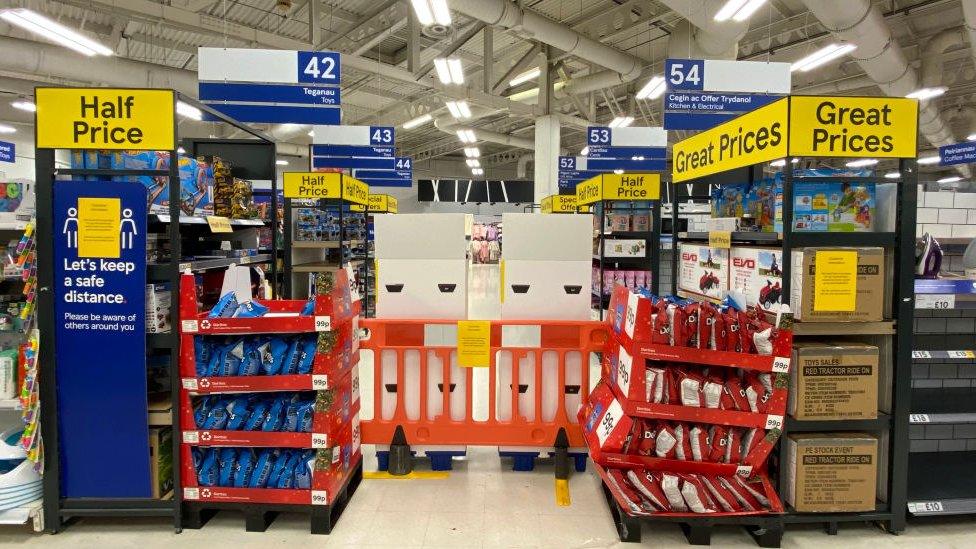
Aisles of toys and other non-essential items were blocked off during the firebreak lockdown
A recent YouGov poll suggested a sharp drop in confidence, external in the Welsh Government's handling of the pandemic.
"We can expect these kind of fluctuations because our polling and the first minister's approval ratings have been so high," said a source.
All were pretty sanguine about the long-term impact on Labour's election fortunes, but the opposition parties had a different take.
"To their credit, they had a good summer, but from about the middle of September onwards, the wheels have come off," said a Conservative MS.
A Plaid Cymru source agrees: "We've not criticised the first minister until very recently, not because the election is nearing, but because we think he's getting it wrong.
"I think the tide has turned because six weeks ago, I would've said that Drakeford's stock was so high it would've changed the dynamic around how we'd play the campaign."
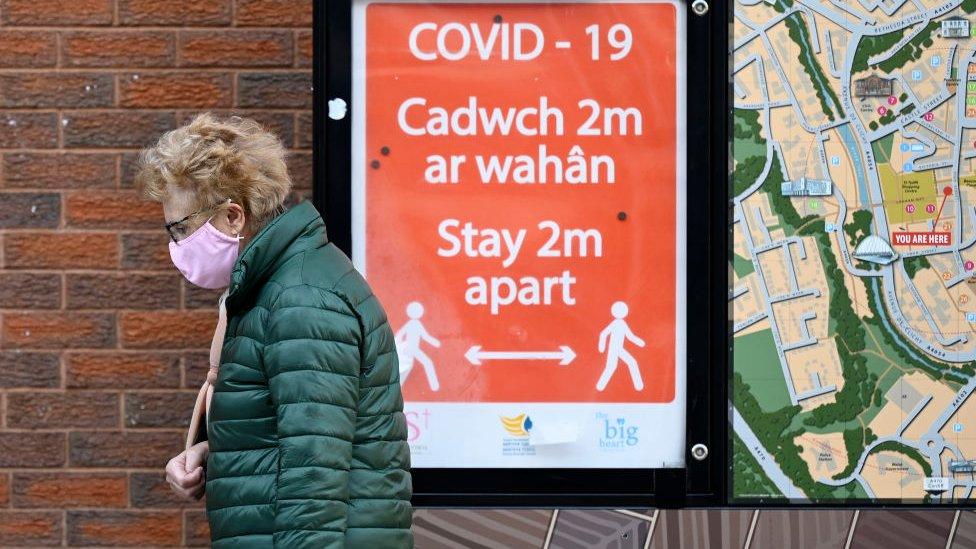
The current Labour Welsh Government has been in charge of much of Wales' response to the pandemic
But developments over recent weeks have convinced Plaid's top team that there is merit in sticking to a partly "presidential" election strategy - with the party's leader Adam Price front and centre.
After a summer of assessing public opinion, the party source says their feedback suggests people generally like Mark Drakeford but when given a choice between the first minister and Adam Price, "they almost always picked Adam".
In response, a Welsh Labour source said: "If Adam wants to play a presidential campaign, then Mark has a higher profile and is well-liked."
October's ITV Wales and Cardiff University Welsh Barometer Poll suggests, external that on a scale of 0 (strongly dislike) to 10 (strongly like), Mark Drakeford averages 4.9, compared to Adam Price's 4.5 and 3.4 for the Conservative Senedd leader Paul Davies.
But the main difference is that 53% of respondents did not know how they felt about Adam Price and there were 60% "don't knows" for Paul Davies.
Only 10% felt unable to express an opinion about the first minister - a lower percentage of "don't knows" than for UK Labour leader Sir Keir Starmer.
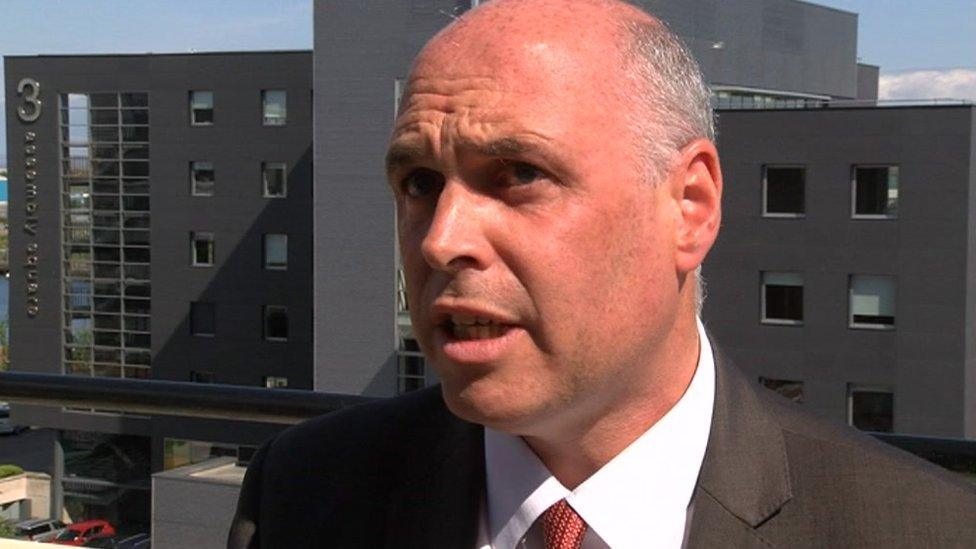
Paul Davies hopes to be the first Conservative first minister after May's election
"There's been a debate in the past about who is really leading Welsh Labour. There'll be no doubt in this election that Mark is leading," according to a party source.
It is a different story for the Tories.
"Boris will determine our outcome," said a Conservative MS.
A Welsh Conservative election campaign that relies so much on the performance of the party's UK leader is "both a blessing and a curse", said another MS.
They added: "I don't think it's a problem for Paul. He will obviously get more coverage as the campaign goes on."
But another Tory source said it was "a problem" and that "Paul needs to step up to the plate" during the campaign.
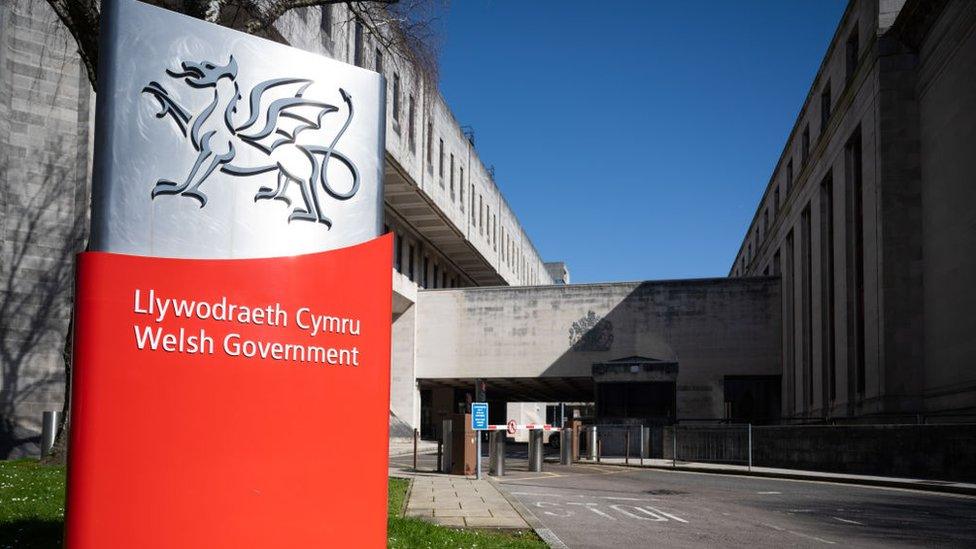
The Conservatives have said they would halve the number of Welsh Government ministers
In general, however, the Conservatives are feeling good about their chances.
"I think I can say with some confidence that we'll get the biggest vote share ever for the party in a Senedd election," according to a Tory MS.
Throughout 2020, the Conservatives' barometer polling was higher than their best Senedd performance in the 2011 election, when the party won 25% on the constituency vote, 22.5% on the regional vote and 14 seats.
"[The last] general election showed us there are potentially more than 500,000 Conservative voters out there in Wales," said a Tory source.
Based on the 557,234 Welsh voters who voted for the Tories in December 2019, their strategy is to convince 75% of them to back the party once again in this year's Senedd election.

Education Minister Kirsty Williams is the sole Liberal Democrat MS - but she is standing down at the election
If successful, it would result in nearly 418,000 votes - higher than Labour's best ever constituency vote of 401,677 in 2011.
As a minimum, the party is targeting those seats they hold in Westminster, such as Wrexham and the Vale of Glamorgan, and believe they have a good chance of taking Brecon and Radnorshire following Kirsty Williams' decision to stand down.
Sources from both parties said it would be more difficult to beat her replacement Liberal Democrat candidate William Powell than had they gone for the party's Welsh leader Jane Dodds to contest the seat.
A Lib Dem source said it would be "50:50", but if they lose the constituency then they hope to at least pick up a Mid and West Wales regional seat.
The Tories' 75% strategy is ambitious given they have historically failed to enthuse their supporters to turn out in Senedd elections.
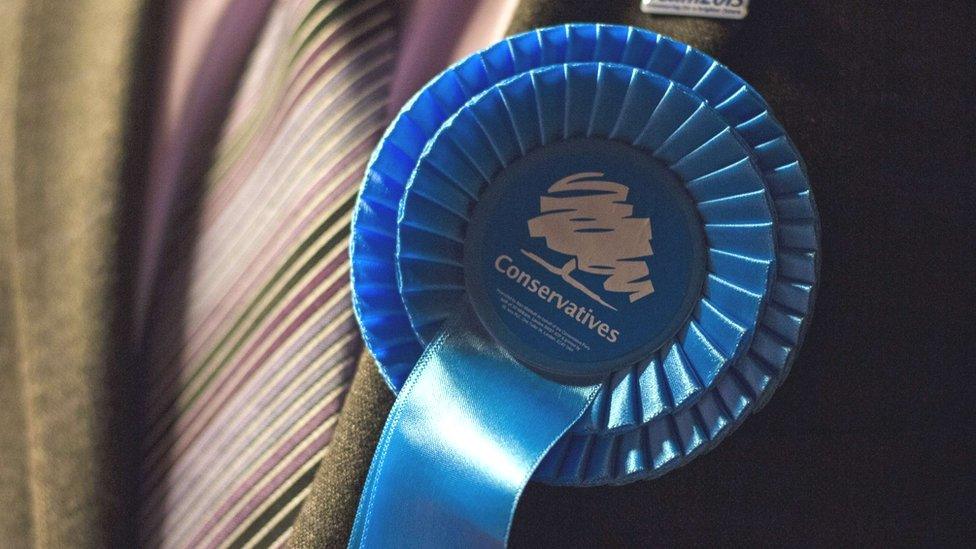
The Conservatives are hoping more people who vote for them in UK general elections will turn out in May
A Tory source said: "They've treated the Senedd as more of a local election and it's been tricky sometimes to get them to realise how important it is.
"So, when you have something like a pandemic to illustrate the level of influence it has over you, then it should have an impact."
Another said: "It's a fair assessment that Tories haven't been that bothered in the past but I've recently seen loads of activists out canvassing."
The party's Clwyd West MS Darren Millar is leading on the manifesto but the party's pitch so far has been as much about tone as policies.
Promises to "respect what is not devolved" and halve the number of Welsh ministers reflect a party that has "to ride two horses".
"We've got to keep those voters who came to us because we're a pro-Welsh party, pro-Welsh language and so on, but we've also got to keep those voters who are more sceptical of the Senedd," a source said.
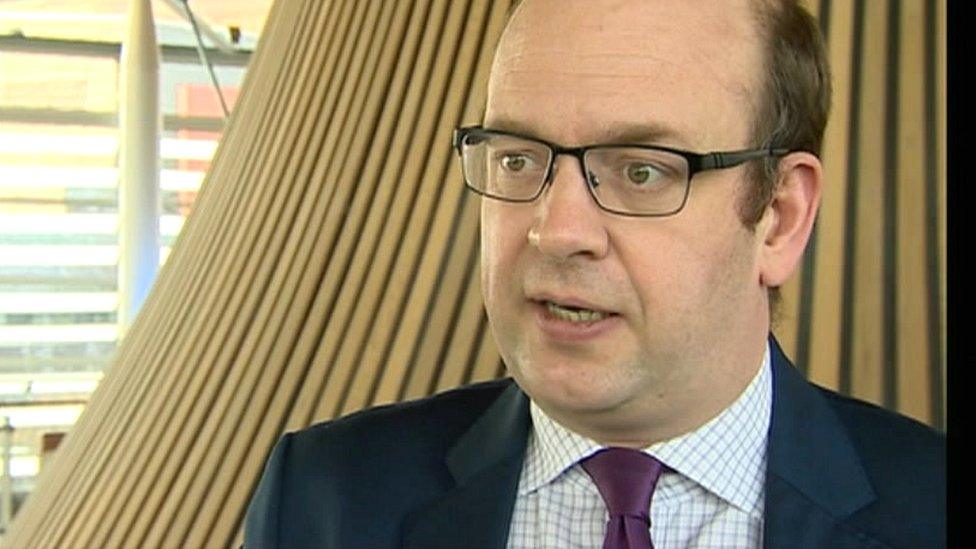
Former Tory and UKIP MP Mark Reckless is now an Abolish the Assembly Party MS
The latest barometer polling suggests that 71% of people who intend to vote Conservative in the constituency vote and 67% who said they would vote for the party on the regional list would support abolishing the Senedd if there was a referendum.
Their concern is that voters back them for the constituency vote but choose the Abolish the Welsh Assembly Party on the regional lists.
A source said: "We're hoping to make progress on the constituency vote in order to reduce that risk.
"But I think when it comes to Conservatives, they're pretty pragmatic - it's five more years of Labour if you waste your vote on Abolish, or you could have us in power.
"I think when you explain that choice to people, they get it."
An Abolish source said: "Our support is growing, our social media platforms are thriving and our message is resonating with the people of Wales."
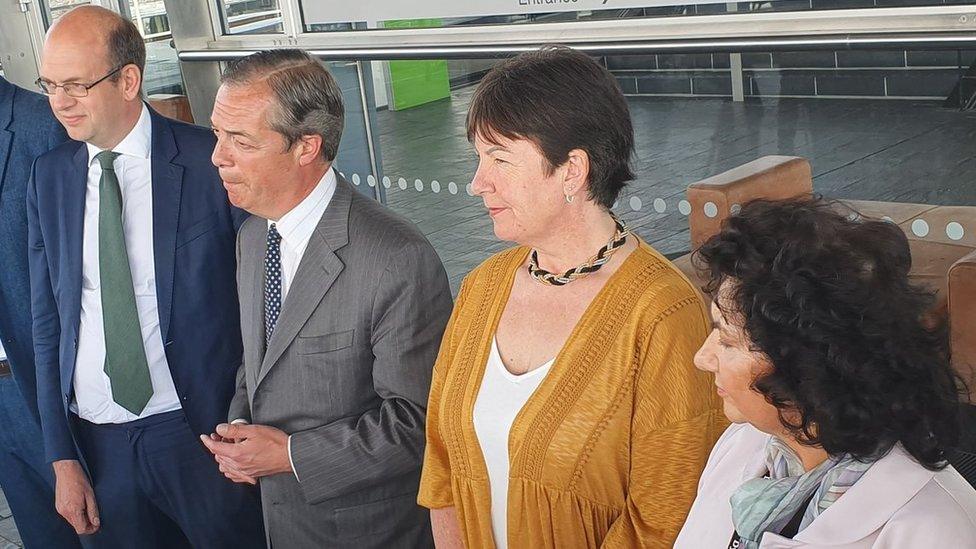
Nigel Farage unveiled Mark Reckless, Mandy Jones and Caroline Jones as Brexit Party members in May 2019 - but it is now looking to change its name to Reform UK
A Labour MS said it is likely old Labour voters who left the party over Brexit could now turn to Abolish, as long as the party is successfully registered in time.
The MS added: "I think they could do really well. Where will those people who used to vote for UKIP as a protest vote go now?"
UKIP will also be standing on an abolish ticket but its polling has plummeted.
The Brexit Party, however, is yet to decide where it stands on the constitution, although I'm told leader Nigel Farage, in keeping with the application to change the party's name to Reform UK, is more supportive of changing devolution rather than scrapping it completely.
As ever, Labour will once again try to frame the election as a battle between itself and the Conservatives.
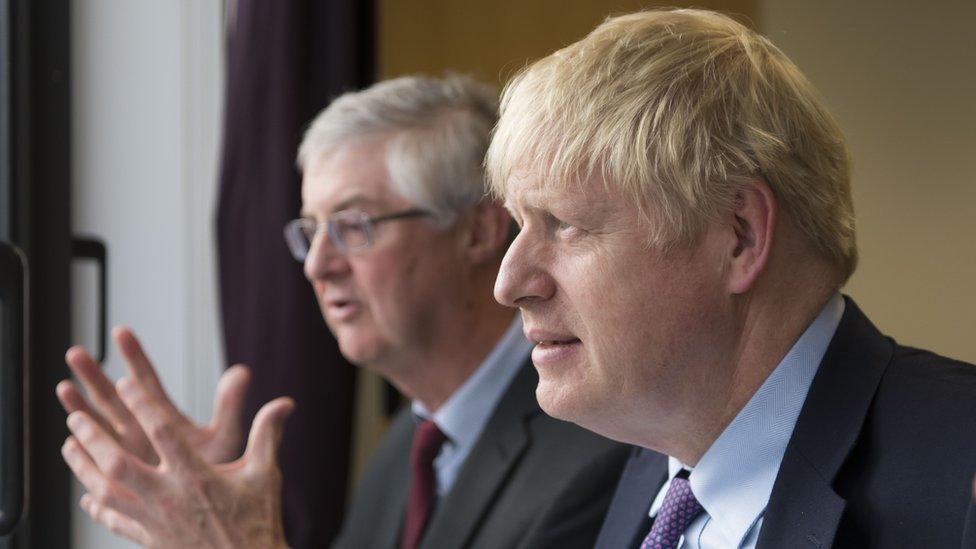
As they battle the coronavirus pandemic, First Minister Mark Drakeford and Prime Minister Boris Johnson have at times taken different paths for Wales and England
"If you want to block a Tory first minister and a Tory government, you'll have to vote Labour," said a party source.
It is a classic line from the party's election playbook - but a few Labour MSs said they were particularly worried about north Wales, having lost five seats there to the Conservatives in December 2019's general election.
"Once they've done it, they've crossed that line from Labour to Tory, it's not such a big deal to vote Tory again. We've got a generational challenge as a party," said a Labour MS.
A party source said: "So much of our election is going to be defensive and hoping to win back places like Rhondda."
Four of the five most marginal constituency seats in the Senedd are held by Labour - Llanelli, Blaenau Gwent, Vale of Glamorgan and Vale of Clwyd.
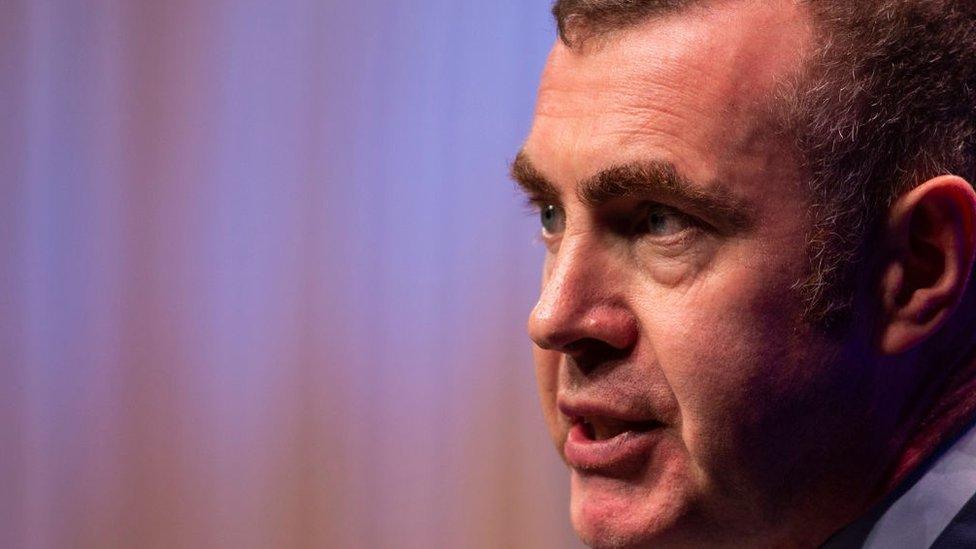
Adam Price believes something "new and better" should come out of the Covid crisis
Three of the five are Plaid Cymru targets, although the party thinks its best chances are in Llanelli and Caerphilly.
Cardiff West, the Labour first minister's seat and the fourth most marginal for Plaid, is likely out of their reach.
Having left the party, their 2016 candidate for the seat Neil McEvoy is aiming to beat Mark Drakeford with his new Welsh Nation Party, which is also waiting for the Electoral Commission to authorise its registration.
Approval has, however, already been given to Plaid Cymru to describe itself as "Plaid Cymru Newydd / New Wales Party", although the commission has rejected it using the description, external "Plaid Cymru: Adam Price First Minister".
Plaid is a lot more focused on its presentation and branding in this election, believing too much time was spent in previous campaigns on developing detailed manifestos.
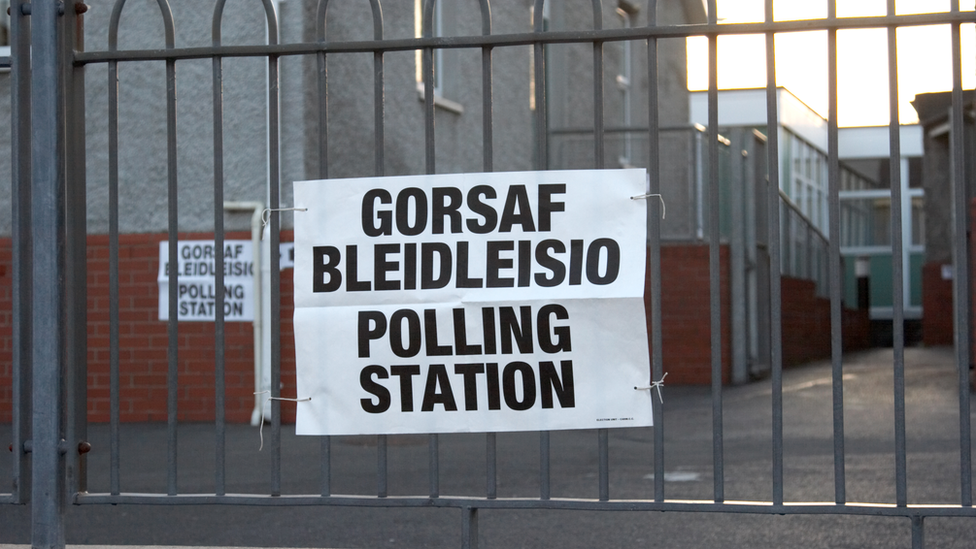
A Plaid source says independence will be more of a focus that before
"We've spent a lot of time on the ingredients for the sausage in the past but not enough time on how it tastes," a party source said.
"We've been thinking more about selling ourselves as an electoral brand.
"We don't want Adam to have to put on his wonkish hat in order to explain what we're trying to do.
"But overall we think people want change because they realise the things that are important to them haven't changed - social care, youth unemployment, social housing.
"And although it won't be a single issue campaign, there'll be more of a focus on independence than ever before."
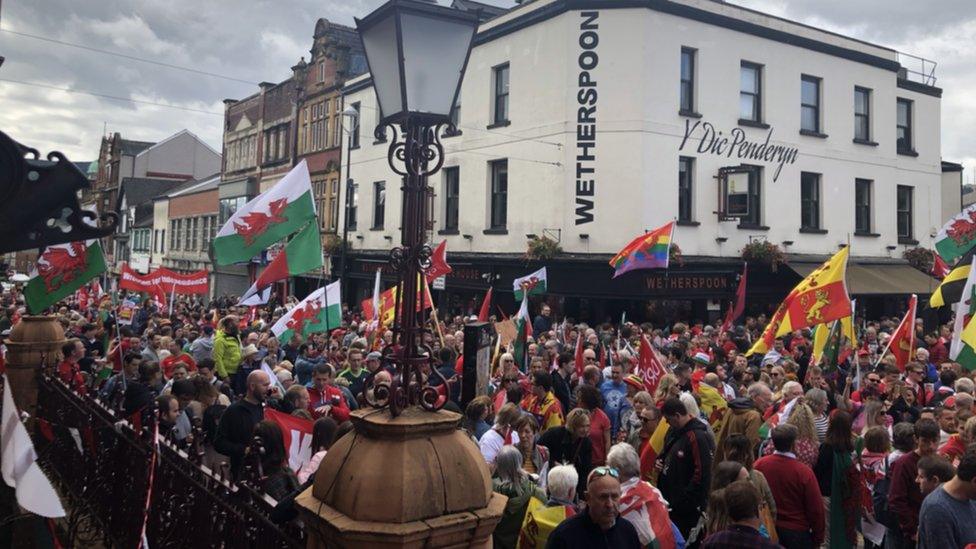
There was a series of pro-independence marches in 2019 and Plaid Cymru believes there will be more focus on the issue than ever before
In a first for the party, it is offering an independence referendum in the first term of a Plaid government.
Plaid sources recognise support for Yes Cymru - the grassroots campaign for independence - is running ahead of support for the party.
Other parties will also stand on a pro-independence ticket - Welsh Nation Party, Gwlad Gwlad, and the Green Party have also decided to back leaving the UK in the event of a referendum.
But Plaid is pitching itself as the biggest and most established independence supporting party: "If you want independence, you have to vote for it by voting Plaid Cymru."
The question remains as to how salient a political issue it is to those people who tell opinion pollsters they would back independence in a hypothetical referendum.
Is it, for example, important enough to attract independence-supporting Labour voters?
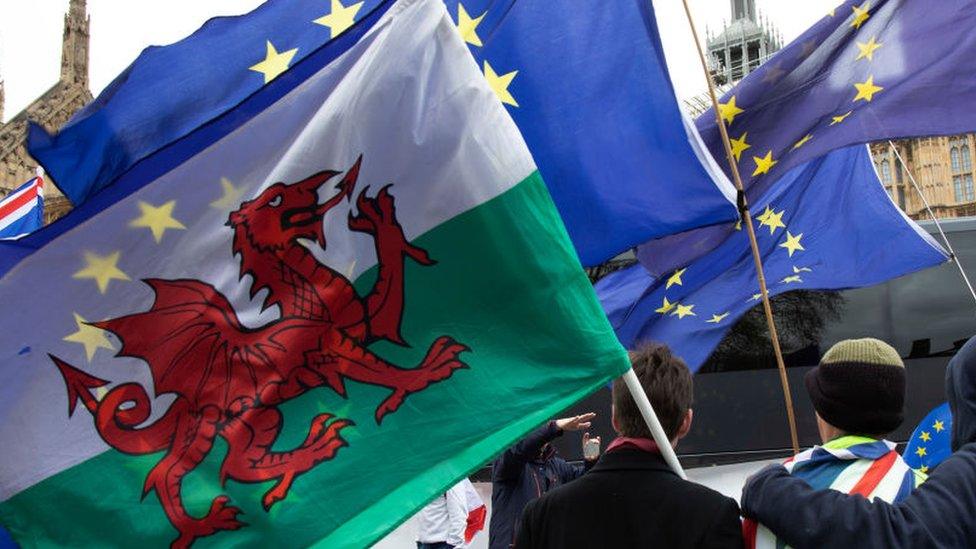
This will be the first Senedd election since the UK left the EU
There is a wider pitch for Labour voters, crucial to Plaid's electoral chances.
"We're going to run the most positive campaign we've ever run," said a Plaid source.
"Labour voters don't respond well to people saying: 'Why have you been voting Labour your whole life, haven't they been a bit rubbish?'
"Our research suggests they much prefer a positive reason to switch."
Messaging is one thing, how it will be delivered depends on the pandemic.
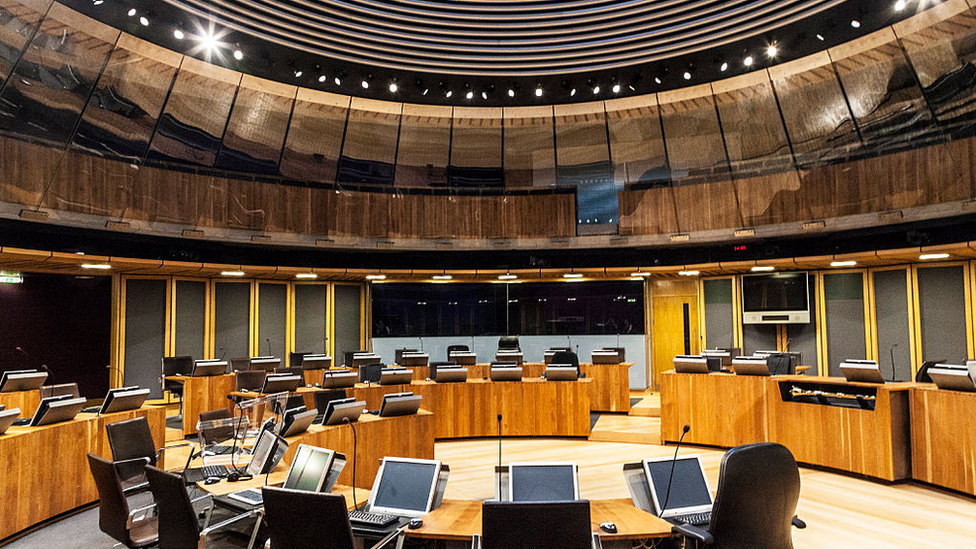
Turnout in elections to the Senedd has never been higher than in the first poll in 1999
The expectation is that most campaigns will have to focus on the online, TV and radio battles.
A Labour MS raised turnout as another "big battle… historically it's been dreadful, hasn't it?"
Few would argue with that.
Turnout has never been higher than the 46% reached at the first devolved election in 1999.
People may well have "woken up to devolution" 21 years later but will that translate in to more votes?
According to the countdown clock in Tŷ Hywel, there are just over four months to find out.
- Published27 December 2020

- Published2 October 2020
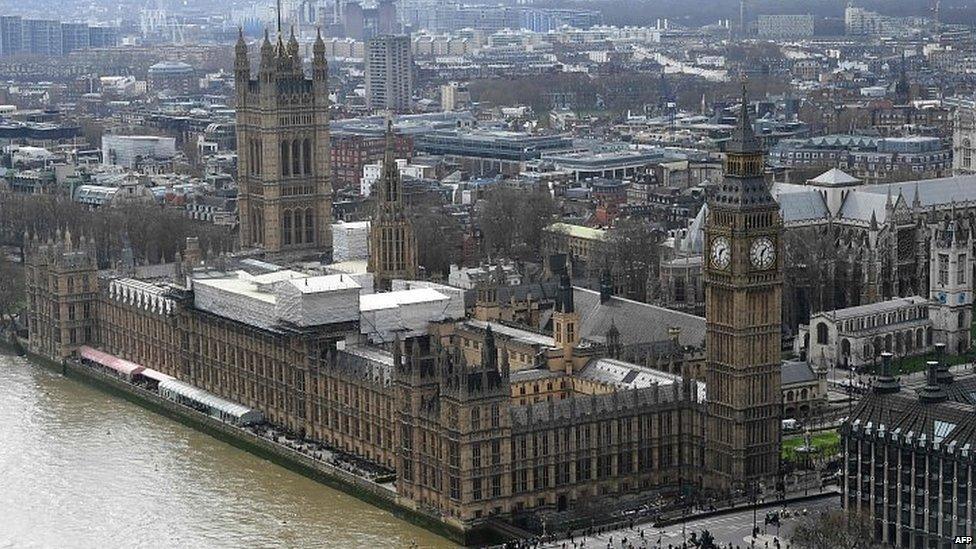
- Published11 December 2020
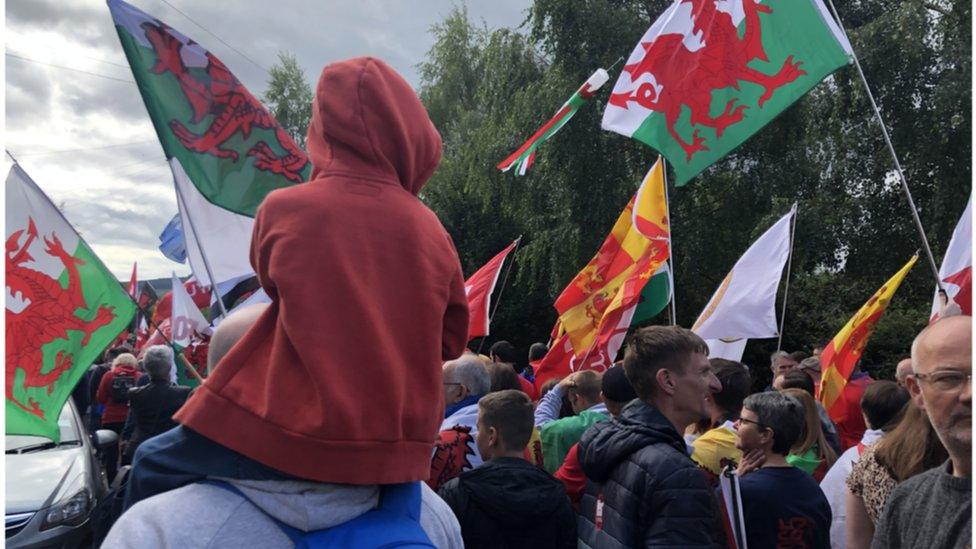
- Published3 November 2020
